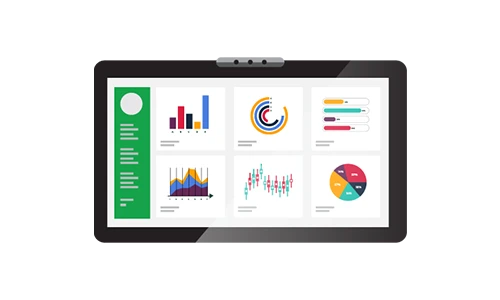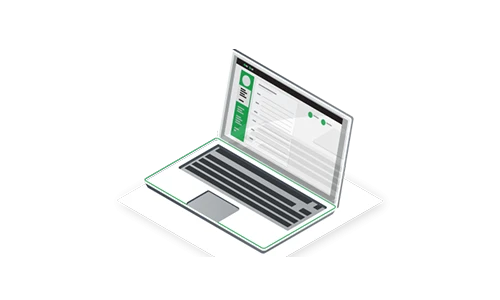The law practice management software encompasses software solutions tailored for law firms and legal professionals to enhance and manage their daily operations, case management, and client interactions. These software systems offer a wide range of tools for tracking cases, managing documents, handling billing, scheduling appointments, and facilitating client communication, thereby boosting efficiency and productivity within legal practices.
Law practice management software is on the brink of significant growth, with projections indicating a surge by 2025. This growth is driven by several key market trends, particularly the increasing adoption of cloud-based solutions and the prioritisation of data analytics tools by law firms.
Market Trends
- Increasing Adoption of Cloud-Based Solutions
One of the most notable trends in the Law Practice Management Software is the shift towards cloud-based solutions. Law firms are increasingly recognising the benefits of cloud technology, which offers flexibility, scalability, and cost-effectiveness. Cloud-based software allows legal professionals to access their systems from anywhere, facilitating remote work and collaboration. This is particularly important in a post-pandemic world where hybrid work models are becoming the norm.
Moreover, cloud-based Law Practice Management Software solutions often come with integrated features such as document management, billing, and scheduling, which streamline various aspects of legal practice. This integration reduces the need for multiple software systems, thereby lowering costs and simplifying training for staff.
- Prioritising Data Analytics Tools
Another critical trend shaping the Law Practice Management Software is the increasing emphasis on data analytics tools. Law firms are beginning to understand the value of data in making informed decisions and improving their services. By leveraging analytics, firms can gain insights into their operations, client behaviors, and market trends, allowing them to tailor their strategies accordingly.
Data analytics tools enable law firms to track key performance indicators (KPIs), assess the effectiveness of their marketing efforts, and identify areas for improvement. This data-driven approach not only enhances operational efficiency but also helps firms to better understand their clients’ needs, leading to improved client relationships and retention.
As the legal landscape becomes more competitive, firms that utilise data analytics will have a distinct advantage. They can make proactive decisions based on real-time data, rather than relying on historical trends or gut feelings. This shift towards a more analytical approach is expected to drive further adoption of Law Practice Management Software solutions that incorporate robust analytics capabilities.
Market Opportunities
- Expanding into Niche Legal Sectors
One of the most promising opportunities for the law practice management software lies in the expansion into niche legal sectors. Traditionally, law practice management software has catered primarily to general legal practices, but there is a growing recognition of the unique needs of specialised legal fields such as family law, intellectual property, immigration, and environmental law. Each of these sectors has distinct requirements that can be better addressed through tailored software solutions.
By developing practice management software that cater specifically to these niche markets, software providers can tap into a previously underserved segment of the legal industry. For instance, tax law practitioners may require tax law software features that facilitates authoritative and timely analysis, updates, and easy to use practice tools, while family law practitioner might benefit from court bundling software tools that easily create and prepare court-ready bundles.
This targeted approach not only enhances the functionality of the software but also improves user satisfaction, as legal professionals find solutions that are specifically designed to meet their unique challenges. As firms increasingly seek specialised tools to enhance their practice, the demand for niche-focused practice management software is expected to rise significantly, creating a lucrative market opportunity.
- Enhancing Mobile Applications
Another critical opportunity for growth in the practice management software market is the enhancement of mobile applications to support legal professionals. The legal industry is witnessing a shift towards mobile technology, with lawyers and legal staff increasingly relying on smartphones and tablets to manage their work. This trend has been accelerated by the rise of remote work and the need for flexibility in legal practice.
Mobile applications that offer robust features for case management, document sharing, billing, and client communication are becoming essential tools for legal professionals. By enhancing these mobile applications, practice management software providers can empower lawyers to work efficiently from anywhere, ensuring that they remain productive even when they are not in the office.
Moreover, mobile applications can facilitate real-time communication with clients, allowing lawyers to respond promptly to inquiries and keep clients informed about their cases. This level of accessibility not only improves client satisfaction but also strengthens the lawyer-client relationship, which is crucial in a competitive legal landscape.
Market Challenges
- The Significant Learning Challenges Linked To Adopting New Technologies
One of the most significant challenges facing the practice management software market is the significant learning challenges linked to adopting new technologies. Legal professionals, many of whom may not be technologically savvy, can find it daunting to transition from traditional practices to modern software solutions. This challenge is particularly pronounced in smaller firms, where staff may have limited resources for training and support.
The complexity of software can lead to resistance among legal professionals who are accustomed to established workflows. If users struggle to understand how to effectively utilise the software, it can result in decreased productivity and frustration. Moreover, inadequate training can lead to underutilisation of the software’s features, preventing firms from fully realising the benefits of their investment.
To mitigate this challenge, practice management software providers must prioritise user-friendly interfaces and offer comprehensive training programs. Providing ongoing support and resources, such as tutorials and webinars, can help legal professionals become more comfortable with the technology.
- Concerns Over Data Privacy and Compliance
Another critical challenge facing the practice management software market is the growing concern over data privacy and compliance. Legal firms handle sensitive client information, and any breach of this data can have severe consequences, both in reputation and legally. As regulations surrounding data protection become more stringent, law firms must ensure that their practice management software complies with these regulations.
To address these concerns, software providers must prioritise robust security measures, including encryption, secure data storage, and regular security audits. Transparency regarding data handling practices and compliance with relevant regulations is essential for building trust with potential users. Moreover, offering features that allow firms to manage their data privacy settings and ensure compliance can enhance the appeal of practice management software solutions.
Conclusion
The Law Practice Management Software market is projected to witness substantial growth by 2025, driven by the increasing demand for comprehensive solutions that streamline legal operations. Among the leading contenders in this space is Lawsyst, an all-in-one legal case management system designed specifically for law firms. With its robust features and integrated business intelligence capabilities, Lawsyst is positioned to meet the evolving needs of legal professionals.
Schedule a Demo! Let our experts walk you through the powerful features of Lawsyst and show you how it can be tailored to meet the unique needs of your firm.






